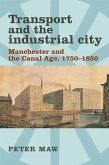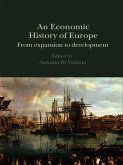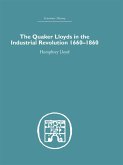Britain's industrial revolution is popularly seen as a watershed in the transition to a modern industrial society. This book involves five closely related objectives. The first is to explore the importance of early eighteenth-century processes of regional formation and spatial integration and set these alongside later developments in regionalisation established by Hudson and others. The second objective is to offer an integrated analysis that seeks to link the detailed empirical evidence of local and regional development with broader theoretical, historical and geographical concepts and debates. Third is the integration of social and spatial divisions of labour was central to regional formation and economic development during this period. The fourth objective is to explore thoroughly the relationship between specialisation and integration in a variety of key sectors and in the regional economy as a whole. The final objective is to provide a rounded picture of development in north-west England where industrial, trading, servicing and commercial leisure activities are treated as part of an holistic regional economy. With a range of theoretical perspectives on regional economic development, the book focuses on textile industries as an example of advanced organic and proto-industrial development. The differentiated nature of Britain's industrial regions is reflected in the development of an increasingly sophisticated mineral-based energy economy parallel to this organic textiles economy. The service industries and interstitial secondary centres are discussed. Specialisation and integration were mutually formative processes that shaped regional development in the early eighteenth century and throughout the industrial revolution.
Dieser Download kann aus rechtlichen Gründen nur mit Rechnungsadresse in A, D ausgeliefert werden.









